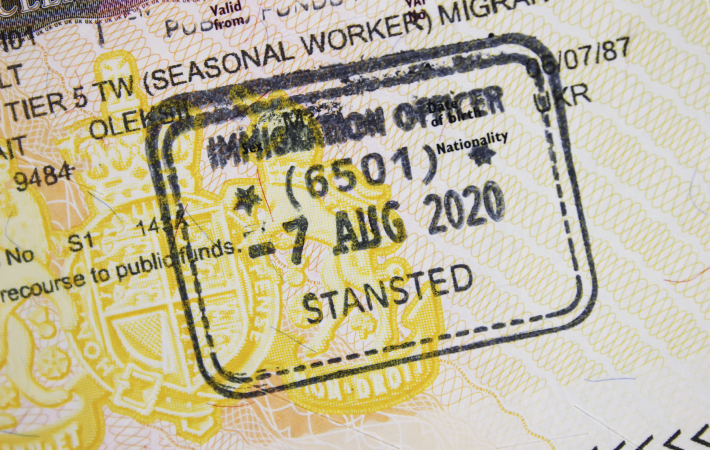
Being granted a license by the Home Office to sponsor migrant workers to work in the UK is not a guaranteed right. Businesses who apply for a sponsor license, and those who are granted one, will be audited by UKVI to ensure compliance with the various duties expected of a licensed sponsor.
One main element scrutinised as part of an audit is compliance with immigration law - notably the conduct of right-to-work checks on its employees. In the UK, all employers have a duty to prevent illegal working by conducting a right-to-work check on all prospective employees before taking them on, and following up with additional checks for those whose permission to remain and work in the UK is time-limited.
If an employer is found to have employed someone who does not have the right to work in the UK, a civil penalty and criminal charges can be imposed on the business. Under new legislation (which comes into force on 13th February 2024), the maximum civil penalty for breach of these rules has been tripled, meaning a business can be facing fines of £45,000 per worker for a first offence and £60,000 per worker for a subsequent offence. Furthermore, failings in this area can result in the Home Office suspending or revoking a sponsor license.
If the employer has a completely compliant right-to-work check history for the employee, this should provide a statutory excuse against the penalty and any sanctions from UKVI.
A UKVI compliance officer will also look for compliance with wider UK employment law and the sponsor’s own duties under the terms of the licence.
A recent case of Prestwick Care Ltd & Others v Secretary of State for the Home Department [2023] has shown how important these other elements can prove to be. In this case, the employer had 219 skilled workers under the Health and Care visa scheme. As part of a compliance check, the employer was found to be in breach of several duties and legal obligations, including:
Failing to comply with the details supplied on individual’s certificates of sponsorship
Non-compliance with the statutory sick pay and national minimum wage rules
Ineffective employee monitoring (including in relation to visa dates)
Recouping sponsorship payments from employees
Poor record-keeping
The care home challenged the decision of the Home Office to revoke its sponsorship license in the High Court, which set a powerful precedent by refusing the appeal. It shows how seriously compliance with the rules and duties is considered and acts as a stark reminder to businesses to continually focus on compliance by reviewing their practices and procedures.
The Home Office believes that sponsorship is a privilege for employers and not a right. They can carry out an audit at any time during the sponsor license period, or before license approval, and can arrive unannounced.
If you need help with immigration compliance, contact Tom Martin at Wilkin Chapman at 01522 515007, email tom.martin@wilkinchapman.co.uk or visit wilkinchapman.co.uk

Contact Tom to discuss this further.